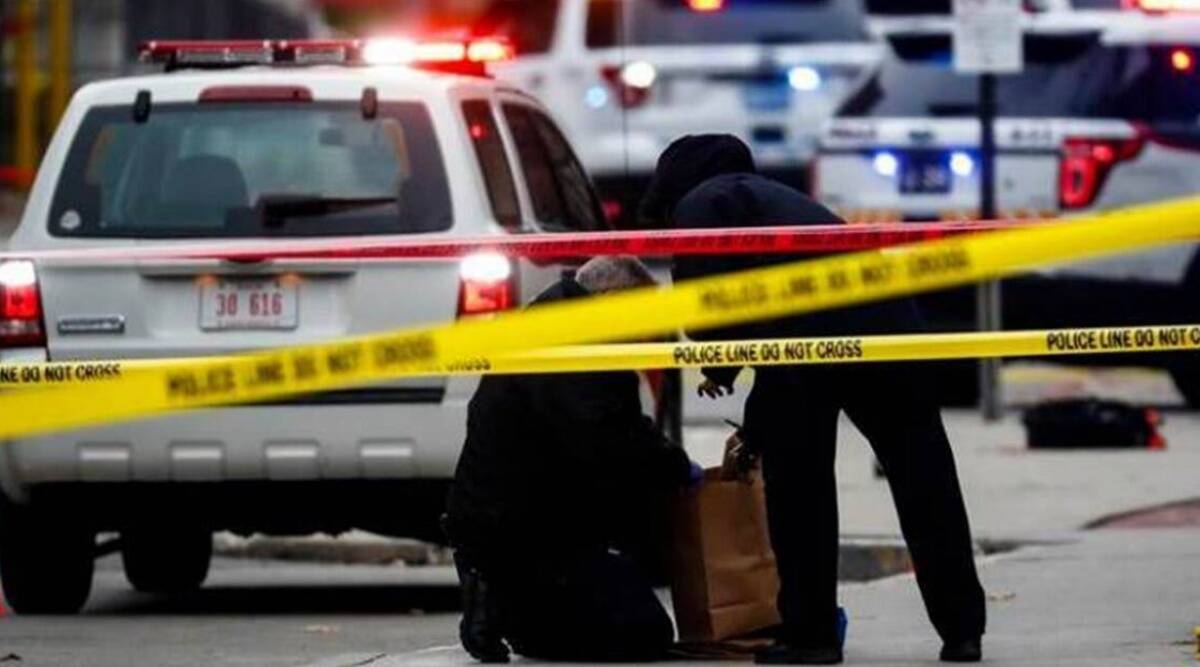
I grew up in Gurgaon before moving to Los Angeles to attend college at UCLA. While I had heard of bomb threats in nearby Delhi, they never posed an immediate danger. The last major bombing incident in Delhi happened in 2011, nearly 12 years ago. However, school and university shootings are all too common in the US. In 2022, there were more than 600 mass shootings, alongside even more firearm-related homicides and suicides, according to the Gun Violence Archive. It was a record year for school shootings, with around 46 incidents in K-12 schools. This year alone, there have been more than 60 mass shootings.
As a student living in Los Angeles, the once-distant threat of gun violence is now a reality. It’s only been three weeks since California experienced back-to-back mass shootings. One of those incidents occurred in Monterey Park, only about an hour’s drive from campus. Some of my classmates and friends had loved ones in the community.
One of the classes I’m taking this term is about firearm prevention policy. I enrolled in the class out of curiosity, to see if there was some solution we were all missing. What emerged is a complex and current sociopolitical problem that requires urgent action.
When I entered my lecture hall yesterday, my professor was at a loss for words. He had come to class prepared to talk about the five-year anniversary of the Parkland school shooting in Florida, which occurred on February 14, 2018, only to realise that another one had taken place. My classmates described the feeling of numbness after hearing about mass shootings nearly every day and a sense of cynicism as gun regulations fail to get passed, year after year.
In my first lecture, my classmates discussed how they enter classrooms and assess their safety in the event of an active shooter on campus. Like many students from India, I had never really considered that having glass doors to a classroom would be a safety hazard. Now, I make sure to look at emergency exits, not just in classrooms but in grocery stores, theatres, and other public spaces.
Although UCLA’s campus and the surrounding neighbourhoods are relatively safe, the Michigan State shooting proves yet again that colleges in the US aren’t immune to gun violence. Last year, a former lecturer, Matthew Harris, sent threats to the faculty, including a video threatening a mass shooting at UCLA. University officials did not communicate this to us, even though news of the threat had begun circulating in student groups.
But Harris was in Colorado while this was happening, so it was unlikely that he could follow through on his threat. Nevertheless, despite student concerns, some professors refused to cancel class, informing students that they would lock and barricade the door if an active shooter incident arose. As I sat in my apartment waiting for updates, I thought about the campus infrastructure. Being a public university, there are no gates or security, which means anyone could walk in — student or not. UCLA finally cancelled all in-person classes and meetings, and Harris was taken into custody the next day.
I did not inform my family about the threat until the police department confirmed Harris was in custody. It was difficult to get on the phone with my parents, living halfway across the world, and tell them that my college could be the site of the next mass shooting. It paints a much uglier picture than they expected when I was applying, excited for me to experience student life in America.
This incident forced me to consider the possibility that the day could have ended very differently. It had, once before. In 2016, a former doctoral student Mainak Sarkar entered the campus and shot a professor before killing himself. Students criticised UCLA for its response, as many lecture halls and classroom doors couldn’t be locked, and people on campus had to create elaborate set-ups to barricade the door.
While my American classmates calmly discuss their active shooter training in school, I feel anxious and unprepared. UCLA didn’t offer any such training or lockdown drills to international students, only a presentation during orientation. Its website contains some resources and guidelines but doesn’t really prepare you for the reality that you could be shot.
The situation at UCLA is not unique. For students planning to study in the US, college here offers wonderful opportunities. But the country is reckoning with very real problems like gun violence, which you may confront during your time here.
No comments:
Post a Comment